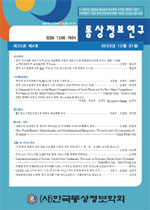본 연구는 한국과 OECD 포함 45개국 간 자동차산업 산업내무역에 특허 출원과 가격 차별화가 미치는 영향을 분석하였다. 이를 위해 HS 코드 6단위로 관세청이 분류한 237개 항목을 완성차, 전기·전자, 기타로 구분해 패널 고정·확률효과 모형을 적용하였다. 분석 결과 완성차 분야 특허 출원은 산업내무역에 미치는 영향이 미미한 것으로 추정되었다. 반면, 자율주행·전동화 트렌드 확산으로 그 중요성이 부각되고 있는 전기·전자 분야는 산업내무역에 긍정적 효과를 미쳤다. 이는 한국 제품에 대한 글로벌 수요가 증가하고, 국내 고객 수요의 다양성 충족을 위해 국산품과 동등 수준의 수입품 사용이 확대되었기 때문이다. 이 같은 전기·전자 분야가 향후 지속적인 경쟁력을 유지·강화하기 위해서는 기업차원의 전략적 선택 뿐 아니라 법·제도 정비와 통합 거버넌스 체계 확립 등 정부정책 측면의 노력이 병행되어야 할 것이다.
This study examines the impact of patent applications and price discrimination on intra-industry trade in the automotive industry across 45 countries, encompassing Korea and OECD members. To address this, 237 items, classified by the customs office under the HS code at the 6-digit level, were categorized into vehicles, electrical and electronic, and other categories. Panel fixed-effects and random-effects models were employed. The findings suggest that patent applications in the vehicles sector exert a negligible influence on intra-industry trade. Conversely, the electrical and electronic sector, gaining prominence due to the proliferation of trends in autonomous driving and electrification, demonstrates a positive effect on intra-industry trade. This is attributed to the growing global demand for Korean products and the expanded use of imported goods at a level equivalent to domestic products to satisfy the diverse demands of domestic customers. To sustain and enhance competitiveness in the electrical and electronic sector, a concerted effort is essential, encompassing not only corporate-level strategic decisions but also governmental policy endeavors, including legal and regulatory reforms and the establishment of integrated governance systems.
Ⅰ. 서론
Ⅱ. 이론적 배경
Ⅲ. 분석 모형
Ⅳ. 실증 분석
Ⅴ. 결론
참고문헌
